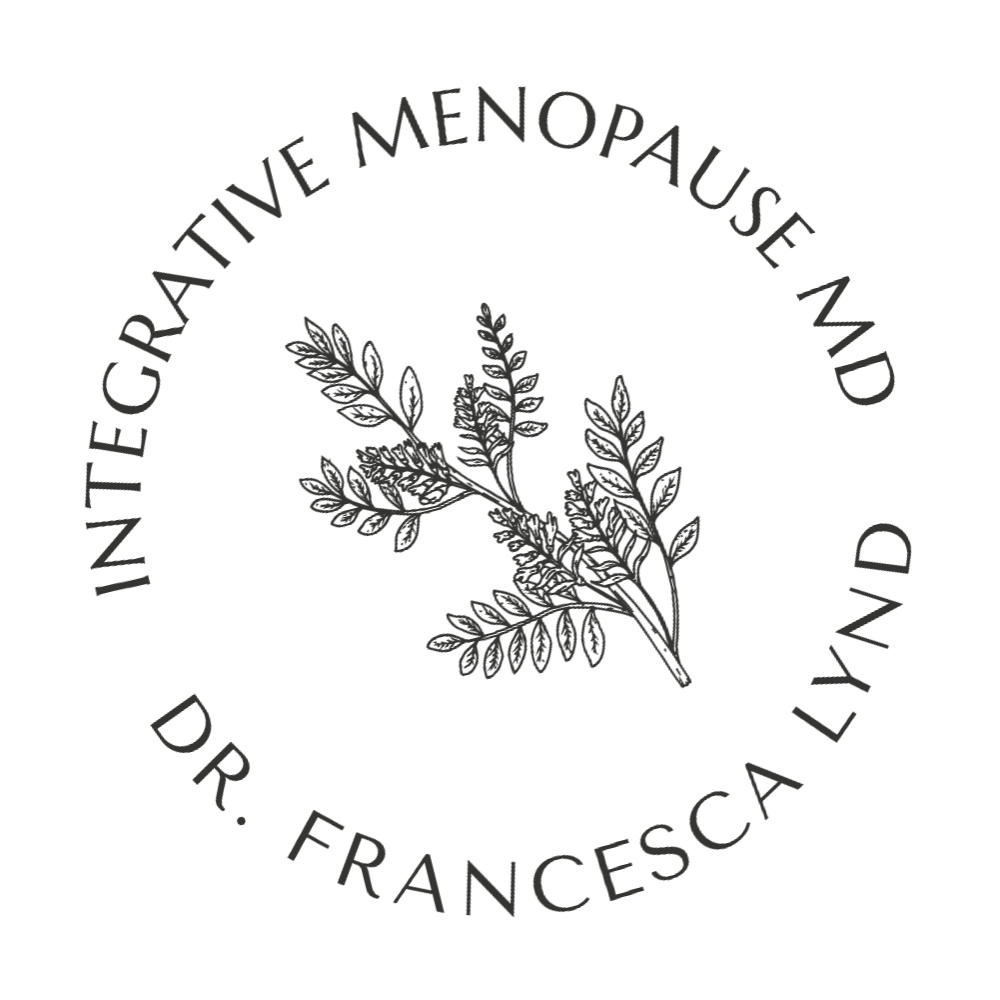Struggling with Perimenopause? Tame the Hormonal Chaos Naturally with Chaste Tree Berry
Feb 18, 2025
Relief for Breast Pain, Mood Swings and Hormonal Imbalance
Perimenopause is a time of shifting hormones that can bring frustrating symptoms—breast tenderness, irregular cycles, mood swings, and sleep disturbances. Many women struggle to find effective, natural solutions, but one ancient herb continues to stand out: Vitex agnus-castus, also known as chaste tree berry.
This botanical ally has been used for centuries to support hormonal balance, and modern research confirms its benefits in easing perimenopausal discomfort. By influencing dopamine and prolactin levels, vitex helps regulate progesterone and estrogen, potentially reducing common symptoms such as:
Breast pain (mastalgia) linked to prolactin imbalances
Mood swings and anxiety often worsened by hormonal fluctuations
Irregular cycles caused by shifting estrogen and progesterone levels
Fatigue and poor sleep due to hormone-related disruptions
A Herb Steeped in History and Global Migration
Vitex agnus-castus, commonly known as chaste tree berry or simply Vitex, has a long history of use in women's health. Native to the Mediterranean region—including Southern Europe, North Africa, and Western Asia—this hardy shrub thrives in warm, subtropical climates.
The plant was well known to ancient Greek and Roman women.The chaste tree (Vitex agnus-castus) has been associated with chastity for centuries. Its botanical name, agnus-castus, combines Greek and Latin words meaning “chaste” or “pure.” In ancient Greece, Athenian women reportedly placed the aromatic leaves of vitex in their beds during the festivals of Demeter (Ceres in Roman mythology), the goddess of agriculture and fertility, as a symbol of purity. The tree was also considered sacred to Hestia (Vesta in Roman tradition), the goddess of the hearth and domestic order.
During the Middle Ages, the plant became known as "monk’s pepper" because it was believed to help monks uphold their vows of chastity. The berries of the chaste tree were thought to have anaphrodisiac properties, reducing sexual desire.
European settlers and herbalists later brought vitex to the United States, where it continued to be cultivated for medicinal use. Today, however, vitex is primarily valued for its role in herbal medicine, particularly for balancing hormones and alleviating symptoms of PMS and menstrual irregularities.
Vitex in Texas: An Ornamental Abundance
Interestingly, vitex has found a new home in Central Texas, where its Mediterranean origins allow it to thrive in the region's hot, dry climate. The Texas Highway Department has even taken to planting vitex along highway medians, where it blooms multiple times a year, creating a striking ornamental display. (You can see them between Katy and San Antonio). However, despite its prolific berry production, these naturalized vitex trees are largely unused. While monks of the past prized the berries for their supposed libido-suppressing effects, today, they are mostly left to fall to the ground.
Modern Science Meets Traditional Wisdom
Although vitex has been used for centuries, modern research is still uncovering its exact mechanisms of action. What we do know is that it influences the dopaminergic system, particularly in its effects on prolactin regulation:
How Vitex Works: Dopaminergic Effects & Hormonal Regulation
Compounds in chaste tree berry (diterpenes) bind to dopamine (D2) receptors in the hypothalamus and anterior pituitary, influencing prolactin release:
- At low levels, vitex causes a slight increase in prolactin via competitive receptor binding.
- At higher levels, its binding activity is sufficient to reduce prolactin release.
- Decreasing prolactin levels indirectly affects follicle-stimulating hormone (FSH) and leutinizing hormone (LH) helping to restore hormonal balance. Vitex has been shown to reduce levels of follicle-stimulating hormone and increase luteinizing hormone, thereby reducing estrogen and increasing progesterone levels. At higher doses, Vitex inhibits prolactin production. Thus, it can be particularly helpful for perimenopausal women who have luteal phase (the time from ovulation until your period) disorders.
Essentially, these actions may explain Vitex’s effectiveness in reducing symptoms like breast pain (mastalgia), mood swings, and menstrual irregularities.
Clinical Research: How Effective Is Vitex?
Several randomized controlled trials (RCTs) have examined the effectiveness of Vitex in managing PMS and menstrual symptoms:
- Vitex was superior to placebo over three cycles in reducing total PMS symptoms, as measured by the PMTS (Premenstrual Tension Syndrome) and PMDD (Premenstrual Dysphoric Disorder) scales.
- Across multiple studies, psychological and physical symptoms improved by more than 50% in vitex-treated groups compared to control groups.
- In a study comparing vitex to fluoxetine (Prozac), both treatments were equally effective. However, two cases of sexual dysfunction occurred in the fluoxetine group, while vitex had no such side effects.
(Reference: Jang et al, BMC Complementary and Alternative Medicine, 2014, 14:11)
Clinical Use in Germany: Approved for PMS and Mastalgia
Germany, a leader in herbal medicine research, has officially approved vitex for treating PMS and mastalgia (breast pain). The German Commission E, the country’s regulatory body for herbal medicines, recognizes vitex as an effective treatment for menstrual cycle irregularities. Many German physicians prescribe vitex as a first-line natural therapy before resorting to pharmaceutical treatments.
Key Benefits of Vitex for Perimenopausal Women
- Hormonal Balance – Supports progesterone production, which may help counter estrogen dominance.
- Eases PMS and Cycle Irregularities – Reduces symptoms like bloating, breast tenderness, and mood swings.
- Mood and Mental Clarity – Some women report improved emotional stability and reduced anxiety.
- Supports Sleep and Energy – Helps regulate hormones that influence sleep patterns and fatigue.
How to Use Vitex
Vitex is available in tincture, capsule, and tea forms. It is typically taken in the morning, as it affects hormone regulation throughout the day. While some women notice benefits within weeks, optimal effects usually appear after three to six months of consistent use.
Precautions and Considerations
- Vitex is not a quick fix; consistent use over time yields the best results.
- Likely not a good fit for women on hormone therapy, including hormonal birth control or certain other medications.
- Consultation with a knowledgeable healthcare provider is highly recommended, especially for those with underlying health conditions and to optimize choosing the correct formulation and dosing.
Embracing Herbal Allies for Peri-menopause Wellness
Vitex remains one of the most respected and well-researched herbal remedies for women’s hormonal health. Its historical use, combined with modern scientific insights, underscores its value for perimenopausal women seeking a natural, gentle approach to hormonal balance. (Though keep in mind, for some women, a sledgehammer to get things under control is necessary—ie hormonal, pharmaceutical or surgical control).
Whether used medicinally or simply appreciated as a beautiful ornamental tree, Vitex is a versatile and powerful plant that deserves more attention. If you live in a climate where it thrives, you might even consider planting one—after all, why let those Texas highway berries go to waste?
Wellness Always,
Dr. Lynd
Clearly, this post is for general information only! This is not medical advice. No physician/patient relationship is formed. Utilizing any of this information is at the reader's own risk. This content is not a substitute for personalized medical advice, diagnosis or treatment. Seek advice from your personal professional provider who knows you and your current medical needs.





